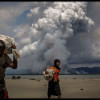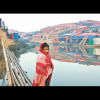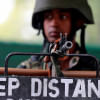UN must act to end plight of Rohingyas
Ambassador Joanna Wronecka of Poland, this month's UN Security Council president, has said that the United Nations has to act when Rohingya refugees are suffering.
She made the remarks at the UN headquarters on Thursday after visiting Myanmar Rohingya in Bangladesh refugee camps earlier this week.
"So, when you see the people suffering we have to act," she told reporters during a monthly briefing on the council's program of work. "The main question is how to help."
"It is difficult to live in the camps," she said. "The conditions are extremely difficult because in Bangladesh due to the monsoon season conditions are harsh," reported Xinhua News Agency.
Monsoon rains already have started and have caused flooding in some areas, threatening the spread of disease and impeding the distribution of humanitarian aid.
She was visibly moved when she described her experiences at the camp. "The refugees cannot stay forever (in the camps). It was obvious. So the question is how to help them return to their place of origin."
The Warsaw envoy said members of the panel of 15 then met with Myanmar State Councilor Aung Sang Su Kyi. While Wronecka said council members had "a very frank" discussion with Myanmar authorities she did not go into any detail.
Some 700,000 Rohingya Muslims fled Buddhist-majority Myanmar to Bangladesh after the military launched a brutal crackdown on insurgents in August that the US and the UN have called ethnic cleansing.
The latest refugees joined hundreds of thousands of Rohingya refugees who previously fled Myanmar.
Wronecka said when the Security Council meets on May 14 for a formal briefing on the situation, she said it was possible the panel "may adopt a PRST" since "we are united, definitely committed to doing something because the people on the ground (the refugees) deserve it."
A PRST is a step below a resolution which carries the weight of international law. A PRST is read out by the president in a formal Security Council meeting and becomes an official document of the world organization.
SAFETY ONLY IN 'MODEL VILLAGES'
Meanwhile, Myanmar's powerful army chief Min Aung Hlaing said Rohingya refugees who return to Myanmar will be safe as long as they stay in the model villages built for them, renewing fears they will be kept in settlements indefinitely.
Myanmar and Bangladesh agreed to repatriate refugees to conflict-hit Rakhine state last year but Rohingya are loathe to come back to a country without guarantees of safety and basic rights such as freedom of movement.
The United Nations has been saying refugees should only return voluntarily when they are ready to go where they want to go in a dignified manner.
The country's powerful army chief Min Aung Hlaing compounded those fears when speaking to a visiting delegation from the UN Security Council in the capital Naypyidaw on April 30.
"There is no need to be worried about their security if they stay in the areas designated for them," he told the delegation, according to a readout of the meeting posted on Min Aung Hlaing's official Facebook page yesterday.
He referred to members of the stateless minority as "Bengalis", reflecting a widespread belief in Myanmar that the Rohingya are immigrants from Bangladesh despite a longstanding presence in Rakhine.
The army chief also cast doubt on the allegations raised by refugees in Bangladesh, many of whom shared stories of extrajudicial killings, arson and rape.
"Bengalis will never say that they arrive there happily. They will get sympathy and rights only if they say that they face a lot of hardships and persecution," he reportedly said, adding that the issue was "exaggerated".
The minority community has been persecuted in Myanmar for decades and Rohingya have lived in what rights groups have called apartheid-like conditions, with severe restrictions on movement and access to health services.
More than 120,000 Rohingya still reside in camps for internally displaced people in the Rakhine state capital Sittwe as a result of intercommunal violence in 2012 that killed hundreds.

 For all latest news, follow The Daily Star's Google News channel.
For all latest news, follow The Daily Star's Google News channel. 








Comments